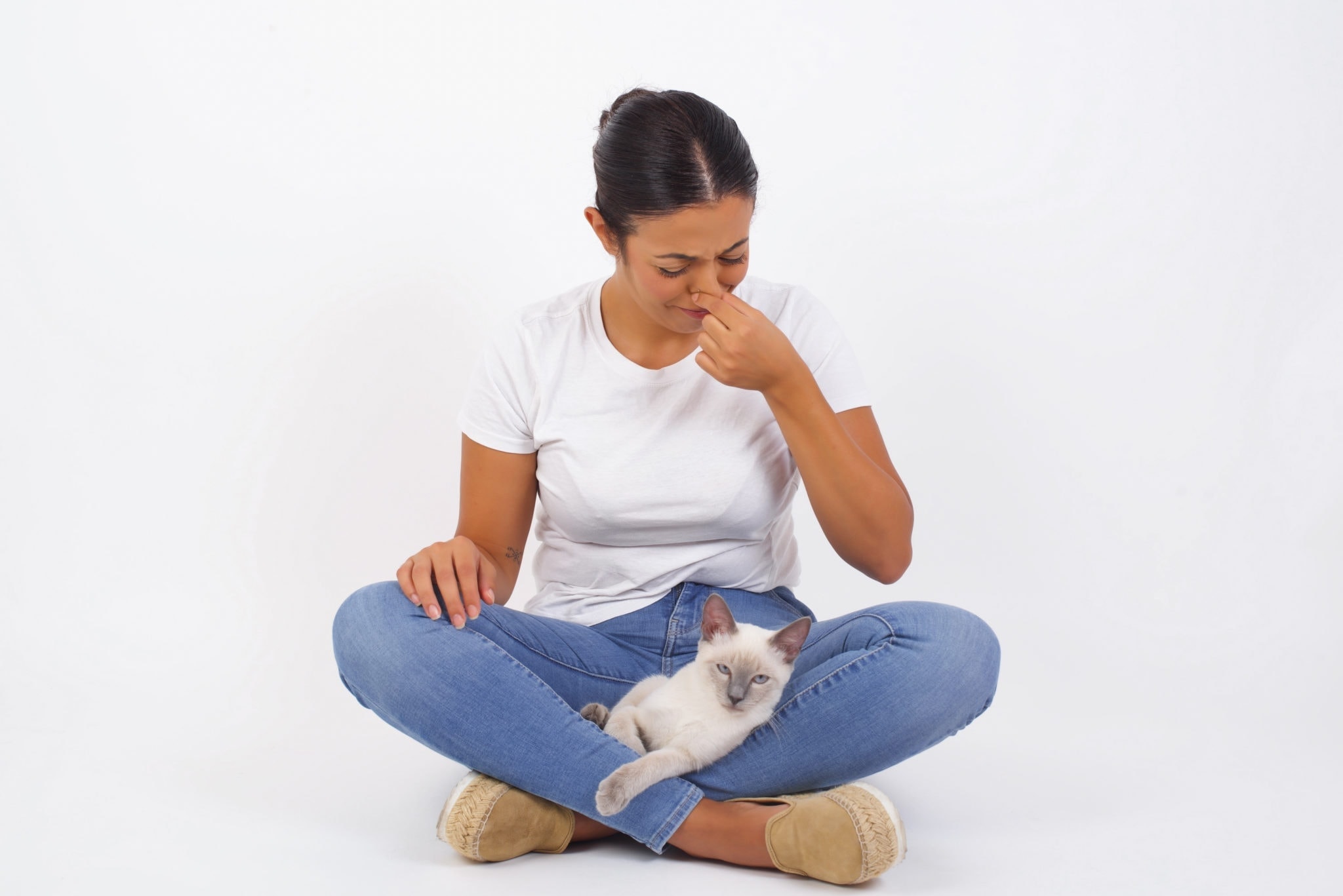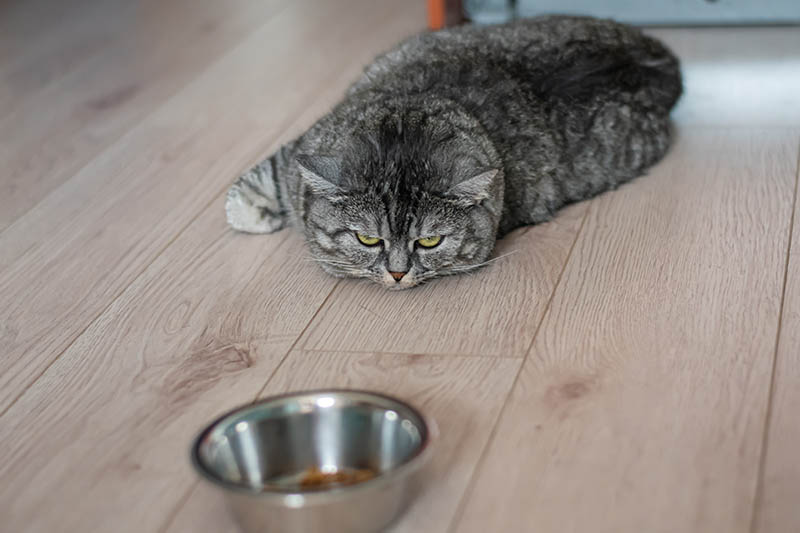Can Cats Eat Cheesecake? Vet Approved Nutrition Facts & Potential Risks
Updated on
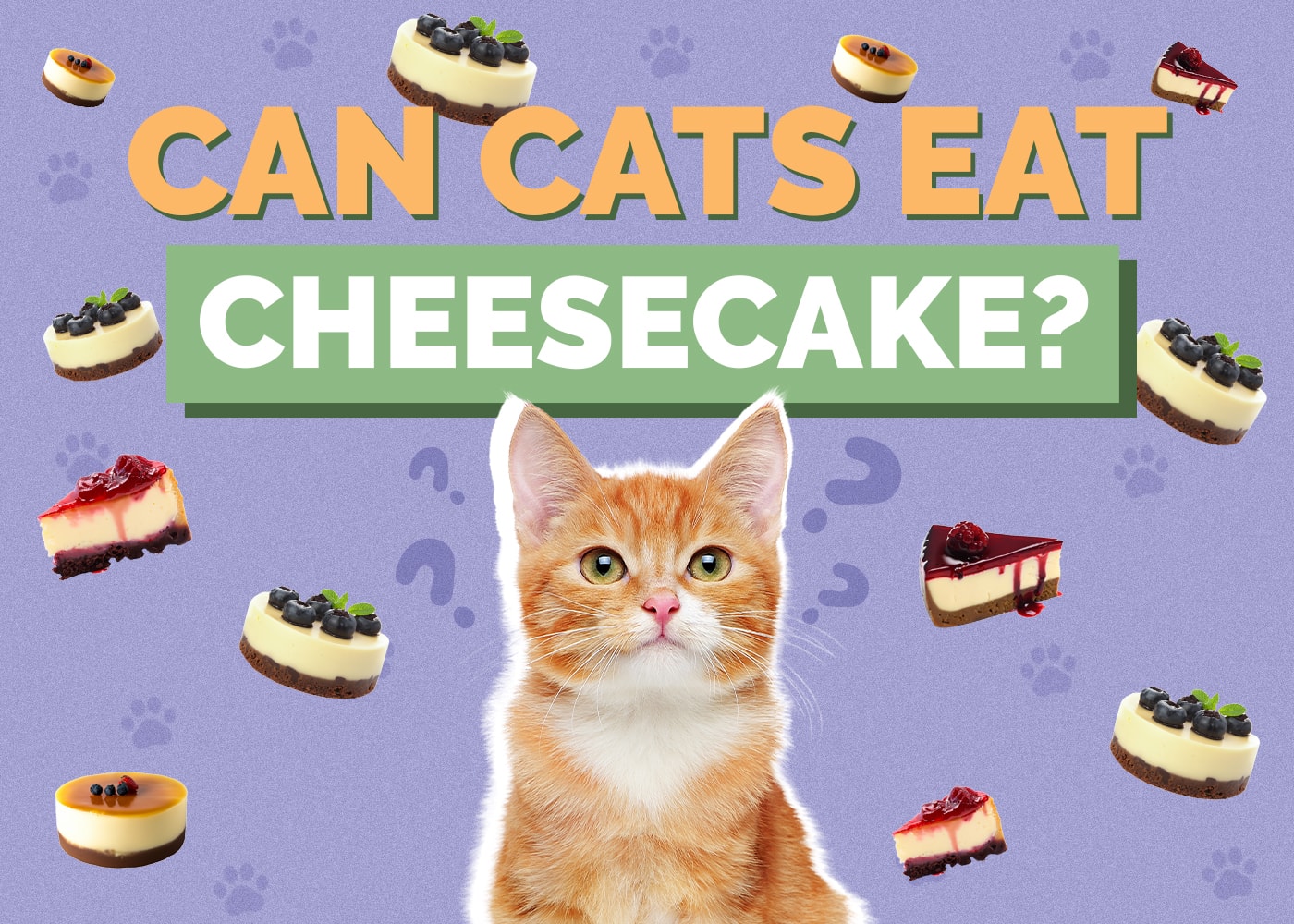
Simple to make and easily customized into dozens of delicious flavors, cheesecake is a popular dessert for humans. But what if your cat decides to steal a few bites of cheesecake off your plate the next time you’re indulging your sweet tooth? Should you be worried or can cats eat cheesecake?
As long as it doesn’t contain any toxic ingredients (more on this later!) cheesecake typically isn’t dangerous for your cat, if they only steal a bite. However, it’s also not healthy for them to eat and could easily cause digestive upset. We don’t recommend giving your cat cheesecake.
In this article, we’ll talk about why cheesecake may not agree with your cat’s stomach, as well as learn why there are better snack options out there for them.
Why Cheesecake Could Make Your Cat Sick
While cheesecake recipes can be easily varied, the main ingredients common to all of them will usually be a heavy dose of cream cheese and probably sour cream. Although cats are often depicted drinking saucers of milk, the truth is that most cats are lactose-intolerant. This means their bodies aren’t able to properly digest the sugars found in dairy products.
Eating dairy products, including those found in cheesecake, often causes vomiting and diarrhea in cats. Some cats may tolerate them better than others and if your cat is one of them, dairy products may not make them sick. However, cheesecake isn’t healthy or appropriate for your cat, which we’ll talk about next.
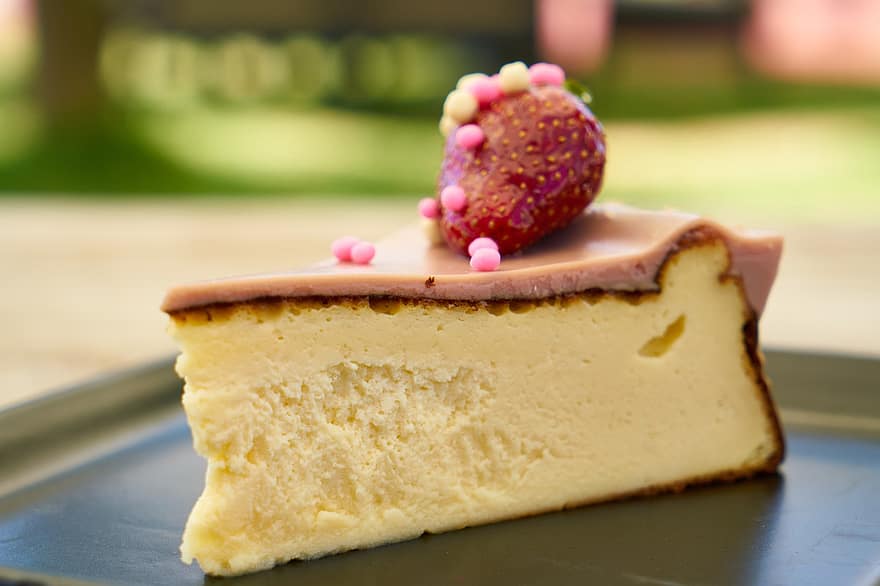
Why Cheesecake Isn’t Healthy for Your Cat
As you might guess by tasting it, most cheesecake also contains quite a bit of sugar and fat. Humans know that we should limit the amount of these foods that we eat and the same is true for cats.
Sugar offers minimal nutritional benefits for cats because they are obligate carnivores, meaning they must get their nutrients from animal sources. A cat’s diet is based on animal protein, while the percentage of carbohydrates they need is low. Long-term, eating sugar can cause many of the same concerns in cats as it does in humans, including obesity. Cats can’t taste sweet flavors anyway, so it’s probably not a sugar craving leading them to the cheesecake!
The other problem with cheesecake is the fat content. Healthy adult cats require a moderate amount of fat in their diet but too much can be a concern. Like eating sugar, consuming high-fat foods can cause your cat to get stomach upset or gain too much weight. Obesity in cats increases their risk for many medical conditions, including cancer, arthritis, high blood pressure, and heart disease.
Toxic Ingredients You May Find In Cheesecake
While most basic cheesecake recipes don’t contain truly toxic elements, many of the variations you’ll find might. Eating these types of cheesecake could be more problematic for your cat. Here are some common dangerous ingredients you may find in different cheesecakes.
Chocolate
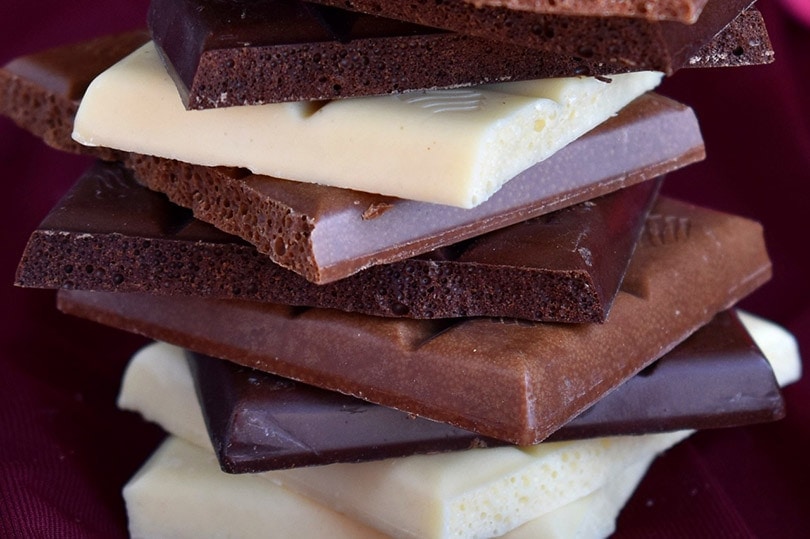
Chocolate toxicity is less common in cats than dogs, but ingesting this ingredient may cause serious problems for our feline friends. Cheesecakes may contain chocolate in various forms, including chocolate crusts, cocoa powder, or a chocolate drizzle. Eating chocolate can cause vomiting, diarrhea, restlessness, or more serious medical issues like seizures and elevated heart rate.
Raisins

Some cheesecake recipes, such as rum raisin cheesecake, are also dangerous for your cat to eat. Eating grapes and raisins can be toxic to your cat, leading to vomiting and possible kidney issues. Because they are dried, raisins are toxic in smaller quantities, and eating even a few can be a problem for your kitty.
Xylitol
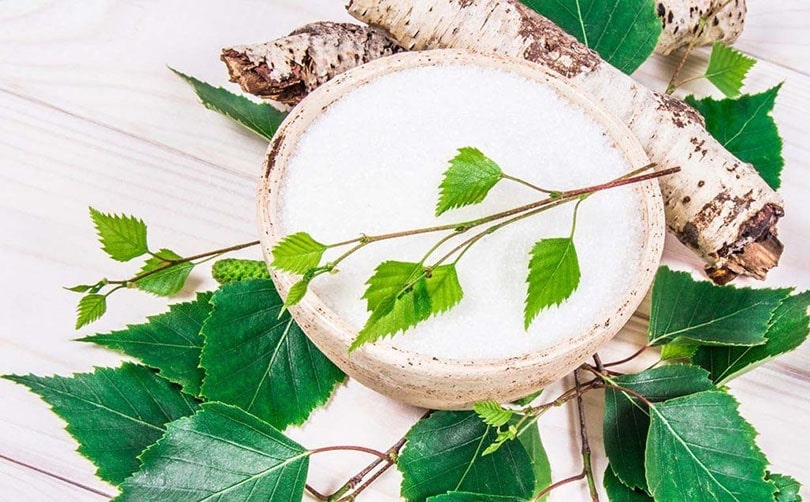
You might think a sugar-free cheesecake would be healthier for your cat but in fact, it could be worse. Xylitol, a common sugar substitute, is extremely dangerous for dogs. While cats don’t seem to suffer the same effects as dogs, you should still avoid this ingredient because the potential side effects are so concerning.
Short-term, xylitol causes dangerously low blood sugar levels. Long-term, it can lead to liver failure. Though one study showed that cats seem to tolerate ingesting more xylitol than dogs in the short term, most vets still recommend avoiding it because the long-term effects aren’t well documented.
Conclusion
While stealing a little piece of a plain cheesecake now and then probably won’t hurt your cat, don’t make a habit of sharing this dessert with your kitty. Instead, stick to feeding your cat a nutritionally balanced diet. If you can’t resist offering your cat some human food treats, try offering small amounts of healthier options like cooked meat, eggs, or fish.
Your vet can help you calculate how many calories your cat should eat each day to stay healthy. Monitor your cat’s weight carefully, and be prepared to resist overfeeding no matter how insistent your cat becomes!
See also:





